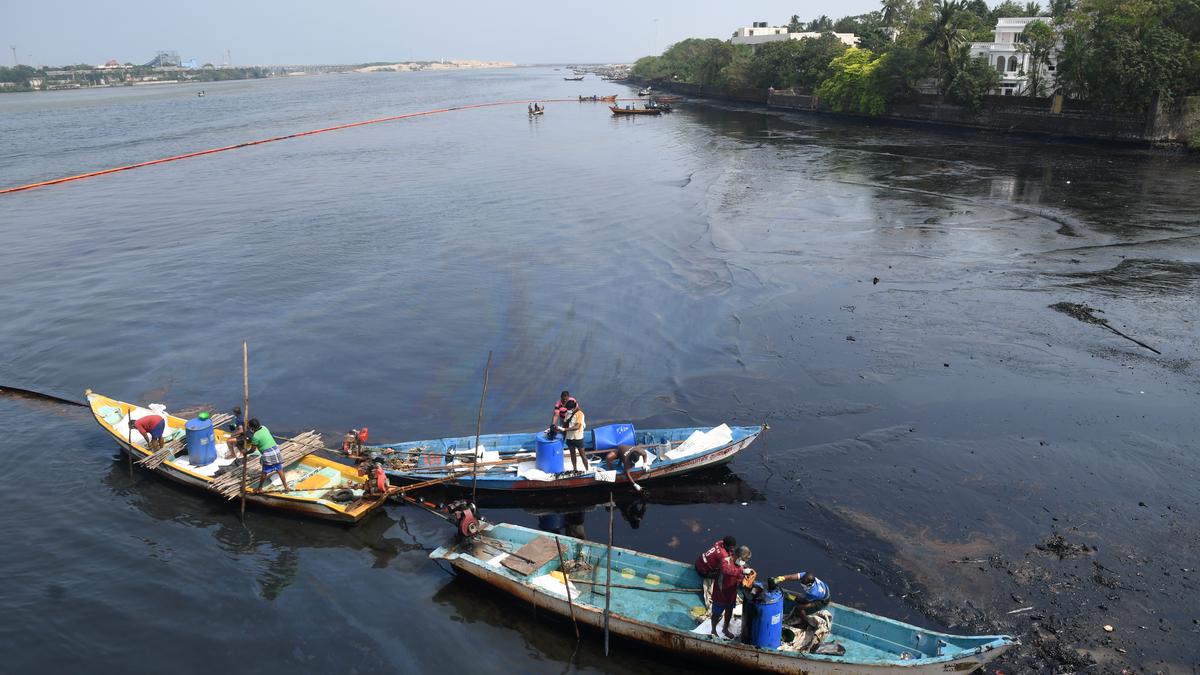
NGT questions T.N. government on how oil spill reached Pulicat backwaters
The Hindu
NGT questions State govt. & CPCL on oil spill reaching Pulicat backwaters; IIT Madras tests soil & water samples.
The southern bench of the National Green Tribunal (NGT) on Monday questioned the State government and the Chennai Petroleum Corporation Limited (CPCL) on how the oil spill reached Pulicat backwaters if, as per reports submitted by the government, the slick was stopped from entering the sea.
Hearing a suo motu case on oil spill from CPCL’s refinery in Manali during Cyclone Michaung, the bench comprising Justice Pushpa Sathyanarayana and expert member Satyagopal Korlapati pressed the State government for reports on the effect of oil spill on marine species and birds. “If birds and fish are dying why are all the reports silent about it?,” asked Justice Sathyanarayana.
Small, dark lumps of oil washed ashore at Koraikuppam and Koonankuppam near Pulicat, a biodiversity hotspot. To assess the biodiversity loss in the oil spill region, the Department of Environment, Climate Change and Forests (ECCF) has undertaken a study. Supriya Sahu, Additional Chief Secretary to ECCF, told The Hindu that the assessment includes GIS-based studies, sampling of soil, sedimentation analysis, fish gut study, biota study, impact on plankton, turtles and birds.
As the NGT’s deadline passed on December 17, the CPCL told the Bench that the clean up operations are expected to be completed in the next two to three days. The impacted area has been categorised into four stretches — Nettukuppam to Ennore bridge, Ennore bridge to Railway Bridge, Railway Bridge to entrance of Buckingham Canal, and Buckingham Canal to Sathyamoorthy Nagar — with four cleaning agencies working on one stretch each.
Arvind Kumar, Managing Director, CPCL reiterated that there was no leakage from its refinery and that the company has been actively working in the oil spill areas to remove the slick. He said the storm water drains of the Manali refinery were well designed to handle maximum rainfall. However, the huge release from Poondi reservoir added to the problem and two of its three crude distillation units had to be closed, he said, adding that as the water level in Buckingham Canal rose, there was reverse flow and heavy water stagnation inside the CPCL premises.
An analysis of samples taken from the oil-affected waters showed no crude oil, said H. Shankar, Director (Technical) and Nodal Officer, CPCL. It is to be noted that the Indian Institute of Technology, Madras is in the process of testing soil and water samples and the results are awaited.











